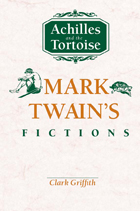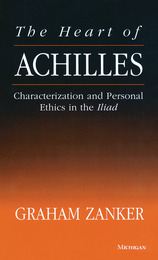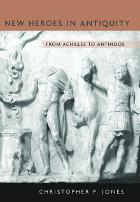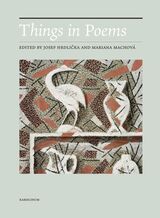
Covering the entire body of Mark Twain's fiction, Clark Griffith in Achilles and the Tortoise answers two questions: How did Mark Twain write? And why is he funny? Griffith defines and demonstrates Mark Twain's poetics and, in doing so, reveals Twain's ability to create and sustain human laughter.
As he attempted to attain the comic resolution and comically transfigured characters he yearned for, Twain forever played, for Griffith, the role of the Achilles of Zeno's Paradox. Like the tortoise that Achilles cannot overtake in Zeno's tale, the richness of comic life forever remained outside Twain's grasp.
The last third of Griffith's study draws parallels between Mark Twain and Herman Melville. Although the two authors never met and seem not to have read each other's works, they labored under the sense of what, in Moby-Dick, Ishmael calls "a vast practical joke . . . at nobody's expense but [one's] own." The laughter occasioned by this cosmic conspiracy shapes the career of Huckleberry Finn fully as much as it does Ishmael's voyage. Out of the laughter are generated the respective obsessions of Captain Ahab and Bartleby, of Pudd'nhead Wilson and Hadleyburg. Reduced at last to a dry mock, the laughter is the prevailing tone of both Billy Budd and The Mysterious Stranger Manuscripts.

"[Zanker] investigates altruistic behavior in the epic with professional sophistication but in a way that makes his investigation available to a wide audience from undergraduates to advanced scholars. . . . [A] very useful interpretative study." --Choice
Graham Zanker is Senior Lecturer in Classics, University of Canterbury, New Zealand.


Achilles—warrior and hero—by the protocols of Western culture, should never cry. And yet Homeric epic is full of his tears and those of his companions at Troy. This path-blazing study by Hélène Monsacré shows how later ideals of stoically inexpressive manhood run contrary to the poetic vision presented in the Iliad and Odyssey. The epic protagonists, as larger-than-life figures who transcend gender categories, are precisely the men most likely to weep.
Monsacré pursues the paradox of the tearful fighter through a series of lucid and detailed close readings, and examines all aspects of the interactions between men and women in the Homeric poems. Her illuminating analysis, first published in French in 1984, remains bold, fresh, and compelling for anyone touched—like Achilles—by a world of grief.

In this volume, fifteen scholars and poets, from Austria, Britain, Czechia, France, Germany, Ireland, Lithuania, and Russia, explore the topic of things and objects in poetry written in a number of different languages and in different eras. The book begins with ancient poetry, then moves on to demonstrate the significance of objects in the Chinese poetic tradition. From there, the focus shifts to things and objects in the poetry of the twentieth and the twenty-first century, examining the work of Czech, Polish, and Russian poets alongside other key figures such as Rilke, Francis Ponge, William Carlos Williams, and Paul Muldoon. Along the way, the reader gets an introduction to key terms and phrases that have been associated with things in the course of poetic history, such as ekphrasis, objective lyricism. and hyperobjects.
READERS
Browse our collection.
PUBLISHERS
See BiblioVault's publisher services.
STUDENT SERVICES
Files for college accessibility offices.
UChicago Accessibility Resources
home | accessibility | search | about | contact us
BiblioVault ® 2001 - 2024
The University of Chicago Press









